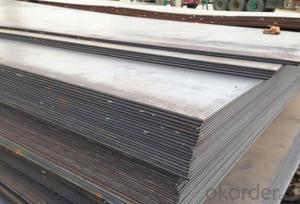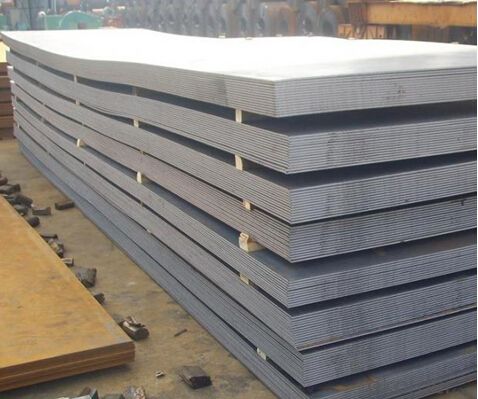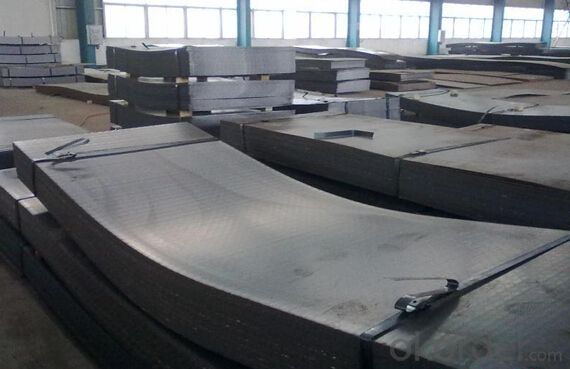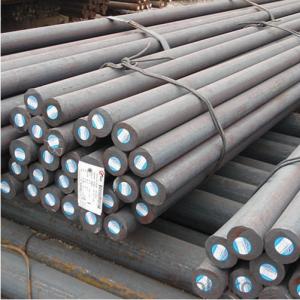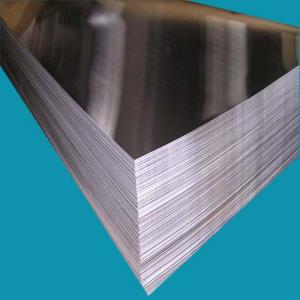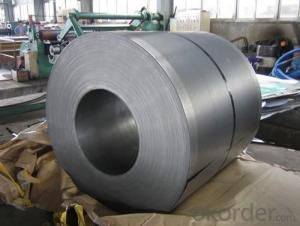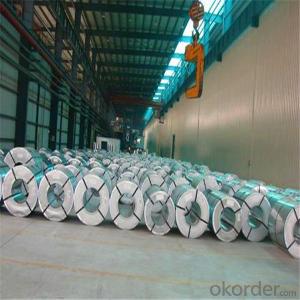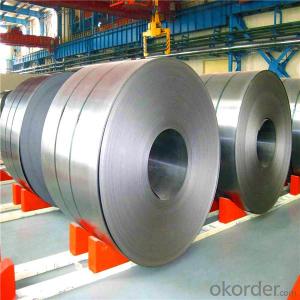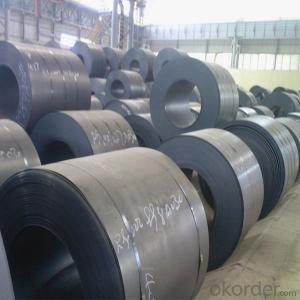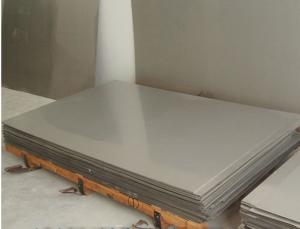D3/Cr12 Cold Rolled Alloy Steel Sheet with Competitive Prices
- Loading Port:
- Tianjin
- Payment Terms:
- TT OR LC
- Min Order Qty:
- 3 m.t.
- Supply Capability:
- 100000 m.t./month
OKorder Service Pledge
OKorder Financial Service
You Might Also Like
Specification
D3/Cr12 Cold Rolled Alloy Steel Sheet with Competitive Prices
Detailed Information of D3/Cr12 Cold Rolled Alloy Steel Sheet with Competitive Prices
| C | Si | P | S | yield Strength MAp | Tensile strength MAp | Elongation % | ||
| A36 | 0.24 | 0.4 | 0.045 | 0.03 | 250 | 400-520 | 26 | |
| C | Si | Mn | P | S | Cu | |||
| A283 | ≤0.27 | 0.15-0.4 | ≤0.9 | ≤0.035 | ≤0.04 | ≥0.2 | ||
| Thickness: | 6mm, 8mm, 12mm, 16mm, 20mm, 25mm, 30mm, 50mm, 80mm, 100mm, 150mm, 200mm | |||||||
| Width: | 1500mm, 1800mm, 2000mm, 2200mm, 2500mm | |||||||
| Length: | 6000mm, 8000m, can cut to width and length | |||||||
| Packing Details; | according to customer‘s require or export’s standard | |||||||
| Delivery time; | 7 days for stock sizes, 20-25 days for new production sizes | |||||||
| Port: | Tianjin China | |||||||
Related Products Overviews of D3/Cr12 Cold Rolled Alloy Steel Sheet with Competitive Prices
Product Name | Typical Grades | Diameter(mm) | Standard Adopted |
Carbon Steel | 20 (1020/S20C/C22) |
Ø16-Ø300 |
GB/SAE/ JIS/DIN |
40 (1040/S40C/C40) | |||
45 (1045/S45C/C45) | |||
Bearing Steel | GCr9 (51100/SUJ1) |
Ø12-Ø250 | |
GCr15 (52100/SUJ2/100Gr6) | |||
GCr9SiMn (A485-Gr.1/SUJ3) | |||
Cr-Mo Steel | 20Cr (5120/SCr420H/20Cr4) |
Ø12-Ø250 | |
40Cr (5140/SCr440/41Cr4) | |||
42CrMo(4140/SCM440/42CrMo4) | |||
Gear Steel | 20CrNiMo |
Ø16-Ø600 | |
20CrMn(5115/SMnC420/20MnCr5) | |||
20CrNiMo(8620/SNCM220/20CrMiMo2) |
Related Products Application of D3/Cr12 Cold Rolled Alloy Steel Sheet with Competitive Prices
Carbon Steel | l Mold bottom l Plastic mold l Construction machinery parts l Automobile parts l Security grills l Screens l Construction |
Bearing Steel | l Aerospace l Navigation l Nuclear energy l Chemical industry l Electronic information l Petrochemical l Instrument and meter l Transportation |
Cr-Mo Steel | l Mechanism & Fasteners gear l Stressed components for vehicles l Engines and machines l Parts of larger cross-section |
Gear Steel | l All kinds of gears l Statically and dynamically stressed component for vehicles l Engines and machine l Larger cross-section parts l Crankshafts |
Company Introduction of D3/Cr12 Cold Rolled Alloy Steel Sheet with Competitive Prices
CNBM International Corporation is the most import and export platform of CNBM group(China National Building Material Group Corporation) ,which is a state-owned enterprise, ranked in 270th of Fortune Global 500 in 2015.
With its advantages, CNBM International are mainly concentrate on Cement, Glass, Iron and Steel, Ceramics industries and devotes herself for supplying high quality series of refractories as well as technical consultancies and logistics solution.
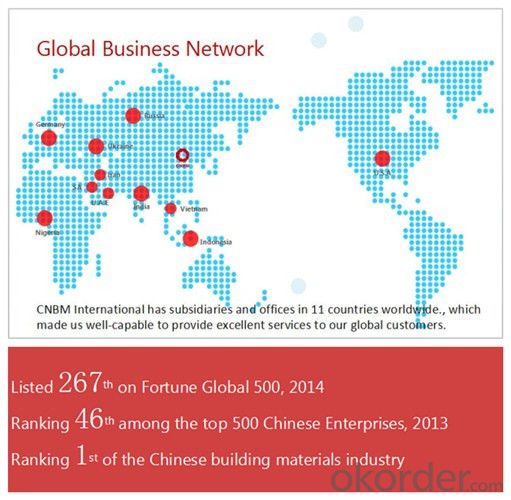
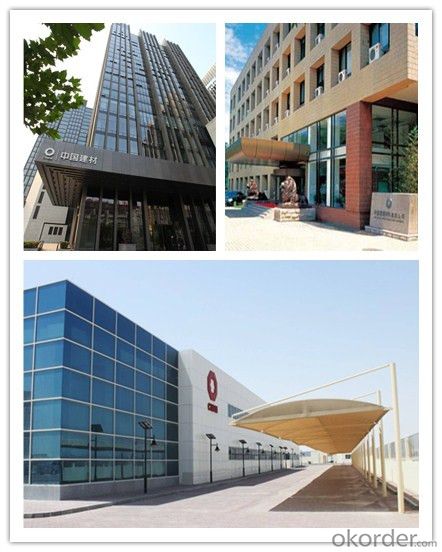
After-sale service | l CNBM provides the services and support you need for every step of our cooperation. We’re the business partners you can trust; you can relax and get on with doing business. l For any problem, please kindly contact us at any your convenient time, we’ll reply you in our first priority within 24 hours
|
Advantages
| l Industry experience over 20 years. l Shipment of goods -More than 70 countries worldwide. l The most convenient transport and prompt delivery. l Competitive price with best service. l High technical production line with top quality products. l High reputation based on best quality products.
|
Packaging & Delivery of D3/Cr12 Cold Rolled Alloy Steel Sheet with Competitive Prices
Packaging Detail | Sea worthy packing /as per customer's packing instruction |
Delivery Detail | 15 ~ 40 days after receiving the deposit |
Products Show
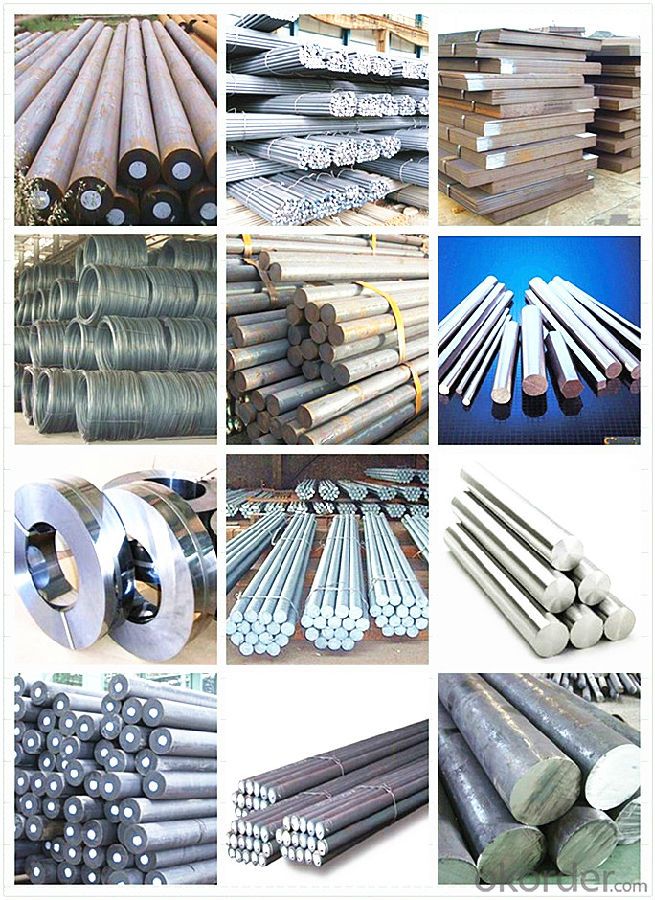
FAQ:
Are you a trading company or manufacturer? | Manufacturer |
What’s the MOQ? | 3 metric ton |
What’s your delivery time? | 15-35 days after downpayment received |
Do you Accept OEM service? | Yes |
what’s your delivery terms? | FOB/CFR/CIF |
What's the Payment Terms? | 30% as deposit,70% before shipment by T/T |
Western Union acceptable for small amount. | |
L/C acceptable for large amount. | |
Scrow ,Paybal,Alipay are also ok | |
Why choose us? | Chose happens because of quality, then price, We can give you both. Additionally, we can also offer professional products inquiry, products knowledge train (for agents), smooth goods delivery, excellent customer solution proposals. |
What's your available port of Shipment? | Main Port, China |
What’s your featured services? | Our service formula: good quality+ good price+ good service=customer's trust
|
Where are your Market? | Covering more than 160 countries in the world |
- Q: What are the challenges in machining special steel alloys?
- Machining special steel alloys poses several challenges due to their unique properties and characteristics. One of the primary challenges is their high hardness. Special steel alloys are often heat-treated to enhance their mechanical properties, resulting in increased hardness. This makes it difficult to machine them as traditional cutting tools may wear out quickly or become dull. The high hardness also increases the risk of tool breakage, leading to frequent tool changes and increased production downtime. Another challenge is the presence of abrasive elements in special steel alloys. Some alloys contain elements like chromium, tungsten, or vanadium, which can cause rapid tool wear and degradation. These abrasive elements can cause excessive tool wear, leading to reduced cutting tool life and increased machining costs. Moreover, the presence of these elements can result in poor surface finish and dimensional accuracy if not properly managed during the machining process. Special steel alloys also tend to have low thermal conductivity, which makes it difficult to dissipate heat generated during machining. This can lead to high temperatures at the cutting zone, resulting in thermal expansion and distortion of the workpiece. The heat can also affect the cutting tool, reducing its life and efficiency. Managing the heat generated during machining is critical to prevent workpiece deformation and maintain dimensional accuracy. Furthermore, the presence of alloying elements can make these steel alloys prone to work hardening. This means that the material becomes harder and more difficult to cut as the machining process progresses. Work hardening can lead to increased cutting forces, tool wear, and reduced surface finish. To overcome this challenge, machining parameters such as cutting speed, feed rate, and depth of cut must be carefully optimized to avoid excessive work hardening. In conclusion, machining special steel alloys presents challenges such as high hardness, abrasive elements, low thermal conductivity, and work hardening. Overcoming these challenges requires the use of specialized cutting tools, efficient cooling and lubrication systems, optimized machining parameters, and careful selection of machining strategies. By addressing these challenges effectively, manufacturers can achieve accurate and efficient machining of special steel alloys.
- Q: How is case-hardening steel used in the manufacturing of gears?
- Case-hardening steel is used in the manufacturing of gears to increase their surface hardness while maintaining a tough and durable core. This process involves heating the gear in the presence of a carbon-rich gas or by immersing it in a carbon-rich environment. The carbon diffuses into the outer layer of the steel, creating a hardened surface. This hardened layer provides enhanced wear resistance and significantly extends the lifespan of the gear, making it suitable for demanding applications where gears experience high loads and friction.
- Q: What are the challenges in heat treatment of special steel alloys?
- The heat treatment of special steel alloys presents various difficulties due to their unique composition and properties. One of the primary obstacles is attaining the desired microstructure and mechanical properties while maintaining dimensional stability. Special steel alloys often contain intricate alloying elements and necessitate specific heat treatment processes to achieve the desired properties. Another hurdle involves controlling the rates of heating and cooling throughout the heat treatment procedure. Special steel alloys are often sensitive to rapid or uneven temperature changes, which can lead to distortion, cracking, or the formation of undesirable phases. Hence, ensuring precise control of the heating and cooling rates is crucial to avoid these issues and ensure uniformity in the final product. Furthermore, the presence of alloying elements in special steel alloys can increase their hardenability, making it challenging to achieve the desired hardness consistently across the entire component. Adequate attention must be given to selecting appropriate heat treatment parameters, including temperatures, soaking times, and quenching media, in order to achieve the desired hardness and prevent excessive hardness gradients. Additionally, special steel alloys are prone to oxidation and decarburization during heat treatment due to their high alloy content and exposure to elevated temperatures. These reactions can result in surface defects and a decrease in carbon content, thereby impacting the final properties of the alloy. Consequently, careful control of protective atmospheres or heat treatment environments is necessary to prevent such issues. Moreover, the size and shape of components made from special steel alloys can pose challenges during heat treatment. Large or intricately shaped components require careful consideration of heating and cooling methods to ensure uniformity in microstructure and properties throughout the entire component. This may involve the use of specialized furnaces, fixtures, or heat treatment cycles to overcome these challenges. In conclusion, the challenges involved in heat treating special steel alloys encompass achieving the desired microstructure and mechanical properties, controlling heating and cooling rates, managing hardenability, preventing oxidation and decarburization, and addressing the size and shape of components. Overcoming these challenges demands a comprehensive understanding of the alloy's composition, properties, and the application of appropriate heat treatment techniques.
- Q: What are the main factors affecting the impact toughness of special steel?
- Various factors influence the impact toughness of special steel and other materials. The impact toughness of special steel can be affected by the following main factors: 1. Composition: The impact toughness of the steel is greatly influenced by its chemical composition. Adding elements like carbon, manganese, silicon, nickel, and molybdenum can enhance the toughness of the steel. Higher carbon content generally increases hardness but decreases toughness, while alloying elements like nickel and molybdenum can improve toughness. 2. Heat treatment: The impact toughness of special steel can be significantly altered by the heat treatment process, including quenching and tempering. Proper heat treatment can refine the steel's microstructure, making it more resistant to fractures and increasing its toughness. 3. Microstructure: The toughness of the steel is heavily influenced by its microstructure, including the size, shape, and distribution of its grains. Fine-grained steels generally exhibit better toughness compared to coarse-grained ones. The presence of certain phases, such as martensite or bainite, can also impact the impact toughness. 4. Inclusions: The presence of non-metallic inclusions, such as sulfides, oxides, or carbides, in the steel can act as stress concentration points and reduce its impact toughness. High-quality special steels often undergo processes like vacuum degassing or electroslag remelting to minimize these inclusions. 5. Processing conditions: The manufacturing processes used to produce special steel can affect its impact toughness. Factors like forging, rolling, or extrusion conditions, as well as the cooling rate during solidification, can impact the microstructure and, consequently, the toughness of the steel. 6. Temperature: The impact toughness of special steel varies with temperature. Some steels exhibit good toughness at low temperatures, while others perform better at higher temperatures. The temperature at which the steel is used or tested is an important factor to consider when evaluating its impact toughness. It is important to note that standardized tests, such as the Charpy or Izod test, are often used to determine the impact toughness of special steel. These tests involve subjecting a notched specimen to impact loading and provide valuable information on the steel's ability to absorb energy and resist fracture under impact conditions.
- Q: What are the main applications of special steel in the packaging industry?
- Special steel is widely used in the packaging industry for a range of applications. One of the main uses is in the manufacturing of packaging machinery, such as filling machines, sealing machines, and wrapping machines, where the high strength and durability of special steel components ensure smooth operation and longevity. Additionally, special steel is utilized for the production of packaging tools, like cutters, blades, and molds, which require resistance to wear and corrosion. The use of special steel in the packaging industry helps to enhance productivity, improve product quality, and ensure the safety and integrity of packaged goods.
- Q: How does the heat treatment process affect the properties of special steel?
- The heat treatment process can significantly affect the properties of special steel. It involves heating the steel to a specific temperature and then cooling it at a controlled rate to alter its microstructure. This process can change the steel's hardness, strength, toughness, and even its resistance to corrosion. By manipulating the heat treatment parameters, such as temperature, time, and cooling rate, manufacturers can tailor the properties of special steel to meet specific requirements for different applications.
- Q: What are the different welding methods used for special steel?
- There are several welding methods that can be used for special steel, depending on the specific requirements of the project. Some of the commonly used welding methods for special steel include: 1. Gas Metal Arc Welding (GMAW): Also known as MIG welding, this method uses a consumable electrode and a shielding gas to protect the weld from atmospheric contamination. GMAW is ideal for welding special steel as it provides high-quality, clean welds with minimal spatter. 2. Gas Tungsten Arc Welding (GTAW): Also known as TIG welding, this method uses a non-consumable tungsten electrode and a shielding gas to protect the weld. GTAW is often used for special steel as it allows for precise control over the welding process, resulting in high-quality, defect-free welds. 3. Shielded Metal Arc Welding (SMAW): Also known as stick welding, this method uses a consumable electrode coated in flux to protect the weld. SMAW is commonly used for special steel as it is a versatile and portable method that can be used in various positions and environments. 4. Flux-cored Arc Welding (FCAW): This method uses a tubular electrode filled with flux to protect the weld. FCAW is often used for special steel as it provides high deposition rates and deep penetration, making it suitable for thicker materials. 5. Submerged Arc Welding (SAW): This method uses a continuously fed wire electrode and a granular flux that is applied around the weld. SAW is commonly used for special steel as it can produce high-quality, high-integrity welds in thick sections. It is important to note that the selection of the appropriate welding method for special steel depends on various factors such as the type and thickness of the steel, the desired weld quality, and the specific application requirements. Therefore, it is recommended to consult with welding professionals or engineers to determine the most suitable method for a particular project involving special steel.
- Q: How does special steel perform in terms of machinability?
- Special steel typically has good machinability due to its composition and specific manufacturing processes. It is often designed to have improved cutting and chip formation properties, allowing for easier and more efficient machining operations. This allows manufacturers to achieve high precision and productivity when working with special steel, making it a favorable choice for various applications.
- Q: What are the environmental considerations associated with special steel production?
- The production of special steel entails various environmental factors to consider due to its resource-intensive nature and the emissions produced throughout the manufacturing process. One primary environmental factor associated with special steel production involves the extraction of raw materials. The production of special steel necessitates specific alloys and additives, typically requiring the extraction of rare or valuable metals. The mining of these materials can result in significant environmental consequences, such as habitat destruction, soil erosion, water pollution, and the release of toxic substances. Another factor to consider is the energy consumption during the production process. Special steel production includes energy-intensive stages like melting, refining, and shaping. These processes frequently rely on fossil fuels, contributing to greenhouse gas emissions and air pollution. Moreover, the high temperatures required for steel production result in substantial carbon dioxide emissions, a leading cause of climate change. Water usage also poses a concern in special steel production. The production process demands a substantial quantity of water for cooling, cleaning, and lubrication. If not managed appropriately, this can lead to water scarcity and pollution. The effluents produced during production may contain heavy metals, acids, and other pollutants, capable of harming aquatic ecosystems if not adequately treated. Waste generation is another environmental aspect to consider. Special steel production generates various types of waste, including slag, dust, and sludge. These waste materials may contain heavy metals, toxins, and other pollutants. Proper disposal or treatment of these wastes is crucial to prevent pollution of soil, water, and air. Lastly, the transportation of raw materials and finished products in special steel production can contribute to carbon emissions and air pollution. The long-distance shipping of raw materials and finished steel products adds to the overall environmental impact of the industry. In conclusion, special steel production presents numerous environmental considerations, including raw material extraction, energy consumption, water usage, waste generation, and transportation. To mitigate these impacts, companies should prioritize sustainable sourcing of raw materials, invest in energy-efficient technologies, promote water conservation and treatment practices, manage and minimize waste generation, and explore cleaner transportation options.
- Q: Can special steel be used in the defense industry?
- Yes, special steel can be used in the defense industry. Special steel, such as high-strength steel or armor-grade steel, possesses unique properties that make it suitable for various defense applications. It can be used for manufacturing military vehicles, aircraft components, body armor, ballistic plates, and other defense equipment that require enhanced strength, durability, and resistance to extreme conditions. Special steel's ability to withstand impacts, provide protection against projectiles, and maintain structural integrity makes it an essential material in the defense industry.
Send your message to us
D3/Cr12 Cold Rolled Alloy Steel Sheet with Competitive Prices
- Loading Port:
- Tianjin
- Payment Terms:
- TT OR LC
- Min Order Qty:
- 3 m.t.
- Supply Capability:
- 100000 m.t./month
OKorder Service Pledge
OKorder Financial Service
Similar products
Hot products
Hot Searches
Related keywords
